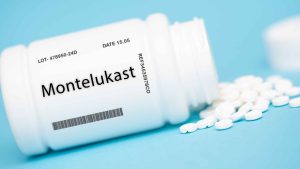Articles / Expert enters the social media menopause wars

American urologist Dr Kelly Casperson is one of the outspoken menofluencers taking to social media to tell mid-life women what menopausal hormone therapy (MHT) can do for them – in the most glowing and black and white terms—and she’s heading to Australia to speak at the So Hot Right Now event at the Opera House in March.
Her reels and posts are not just garnering the attention of information-starved women, though, they’re also generating the ire of some of the very experts they reference.
Take this reel Dr Casperson posted last week, exhorting the benefits of testosterone for mood in women.
“For anybody who says that we do not have randomised controlled trials with placebo controls on testosterone and mood in women, first of all we’ve got tons of data and international consensus on testosterone for libido, which is a mood, but we also have this paper,” she tells her Instagram audience, citing a 2003 trial with 34 participants, published in Menopause.
“Testosterone works better than placebo for mood, and not just libido,” she captioned.
Dr Casperson asserts the decades-old study’s conclusion, that testosterone therapy improves well-being, mood, and sexual function in premenopausal women with low libido and low testosterone—what she doesn’t tell her audience, however, is that the study was merely a pilot, and the findings were never replicated.
How do I know that? Because the lead author of the paper Professor Susan Davis entered the comments.
“As the senior author of this paper, I suggest you need to tell your listening audience that we were never able to replicate these findings for testosterone and wellbeing in premenopausal women in a much bigger study that was published in the Annals of Internal medicine – a leading medical journal -in 2008,” Professor Davis explained.
“So the small 2003 study was a pilot study with findings we have not been able to validate,” she continued.
“We’ve also not been able to show consistent improvements in well-being in studies of postmenopausal women that have included 500 to 800 women. So instead of cherry picking our data and misleading women you might try to share the full picture.”

While this might have seemed like a mic-drop moment to many, Dr Casperson was undeterred. “You can’t say there is no evidence. You published some of the evidence,” she told Professor Davis.
When Professor Davis again implored her to share the systematic review and meta-analysis findings, Dr Casperson retorted that she has nearly 4000 Instagram posts and 300 podcast episodes.
The Menowars have well and truly begun.
For her part, Professor Davis recently joined Instagram, proactively rebutting some of the spurious claims being bandied about by menopause influencers – and breaking down the evidence for consumers and health professionals alike.

Dr Marita Long, a GP with special interest in women’s health and a board member of the Australasian Menopause Society, says she welcomes the increased interest in menopause – but finding “the Goldilocks” can be a challenge, underscoring the importance of experts like Professor Davis speaking up.
“As GPs we all strive to deliver the best care to all of our patients, including women in peri/menopause. Caring for women in this period is very nuanced and not every woman fits into the clinical guidelines or current best evidence. However, we do need to be mindful of causing harm –and that can be through both undertreating and overtreating – and I am seeing both in practice,” Dr Long said, adding that Professor Davis’s posts have helped her strike that balance and feel more confident in her approach.
Professor Davis says her team’s meta-analysis of RCTs did not reveal a consistent benefit of testosterone for depressive symptoms or for psychological and general well-being.
“In summary, there is insufficient data to conclude whether or not testosterone might be beneficial for women with depressive symptoms at midlife, and further research is needed. The data does not presently support the prescription of testosterone for depressive symptoms or low mood.”
For evidence-based menopause information, you can follow Professor Davis on Instagram here.

Migraine Management Update

Asthma Cases – When to Use Dual vs Triple Therapy

Trauma-Informed Care in GP

Prevention and Management of Diabetic Retinopathy



Yes, if the referral process involves meaningful collaboration with GPs
Yes
No
Listen to expert interviews.
Click to open in a new tab
Browse the latest articles from Healthed.
Once you confirm you’ve read this article you can complete a Patient Case Review to earn 0.5 hours CPD in the Reviewing Performance (RP) category.
Select ‘Confirm & learn‘ when you have read this article in its entirety and you will be taken to begin your Patient Case Review.
Kickstart your learning for 2025 and earn up to 24 hours of CPD across all three learning categories (EA, RP & MO).